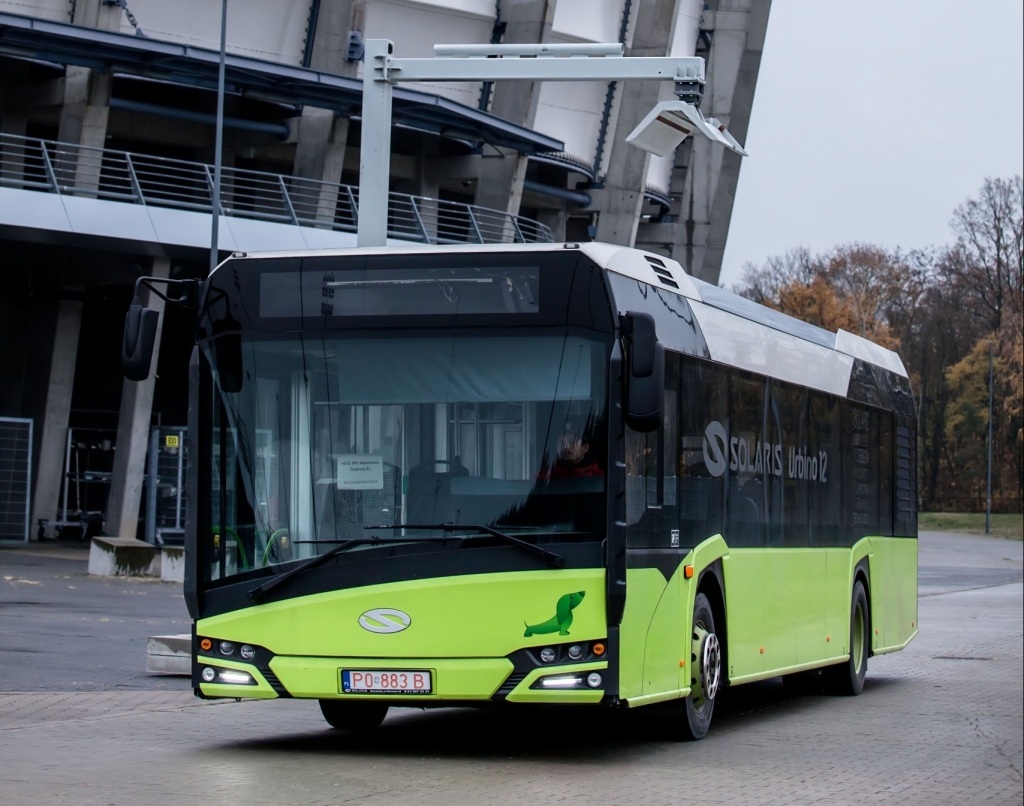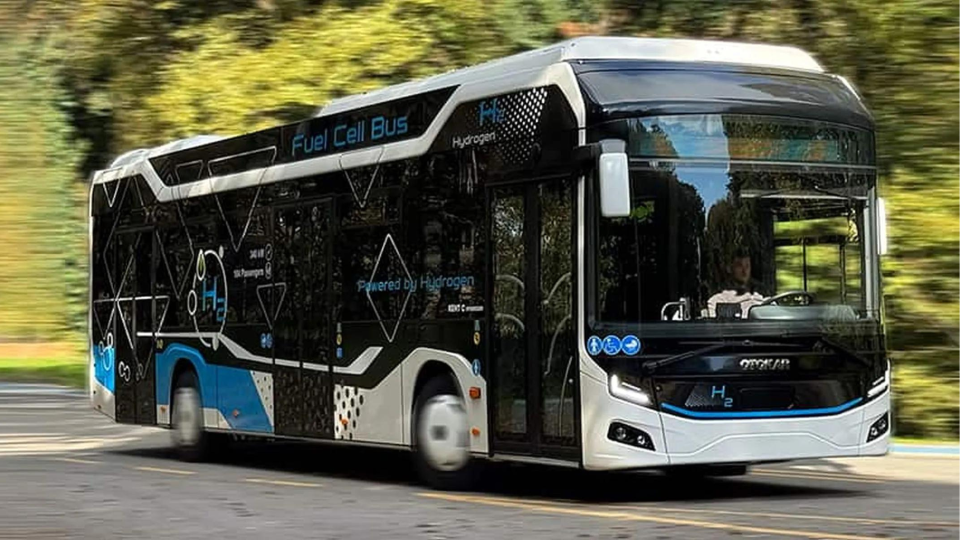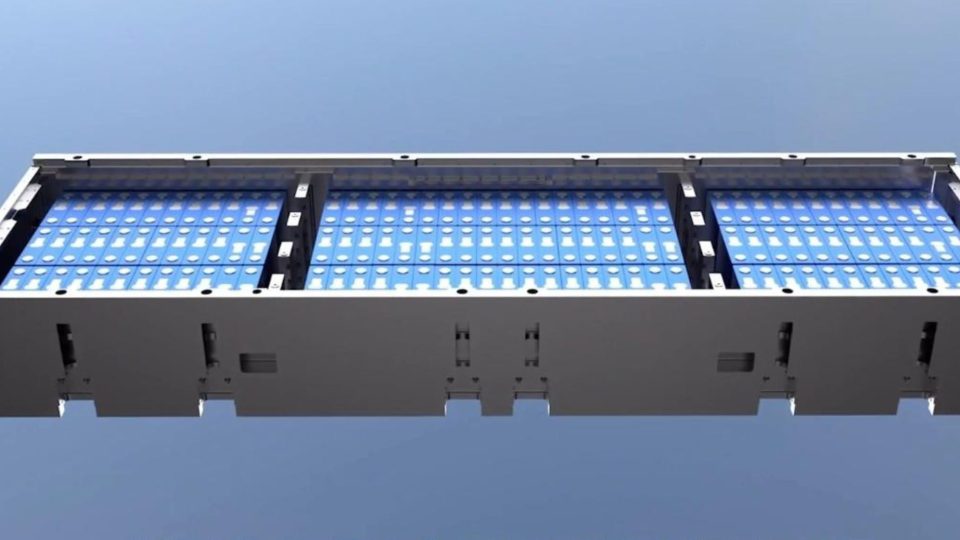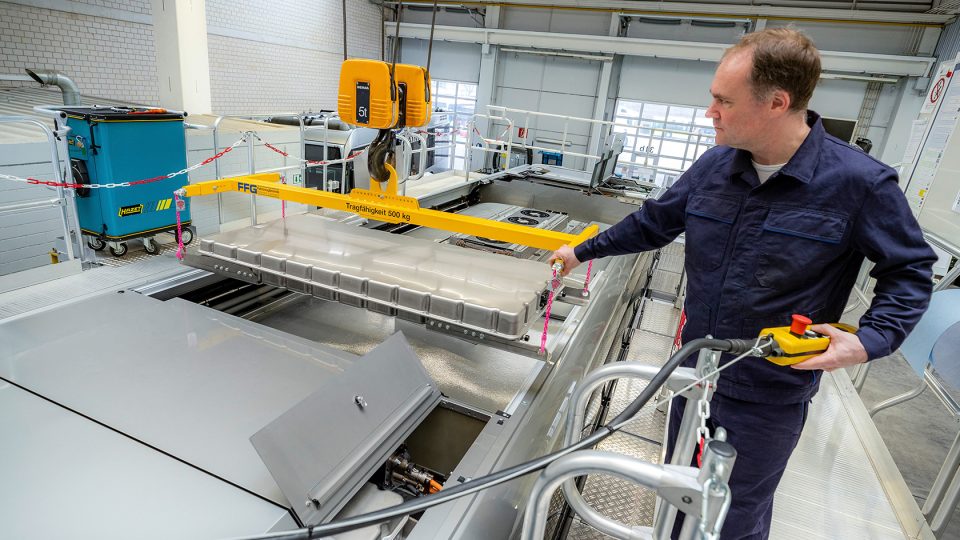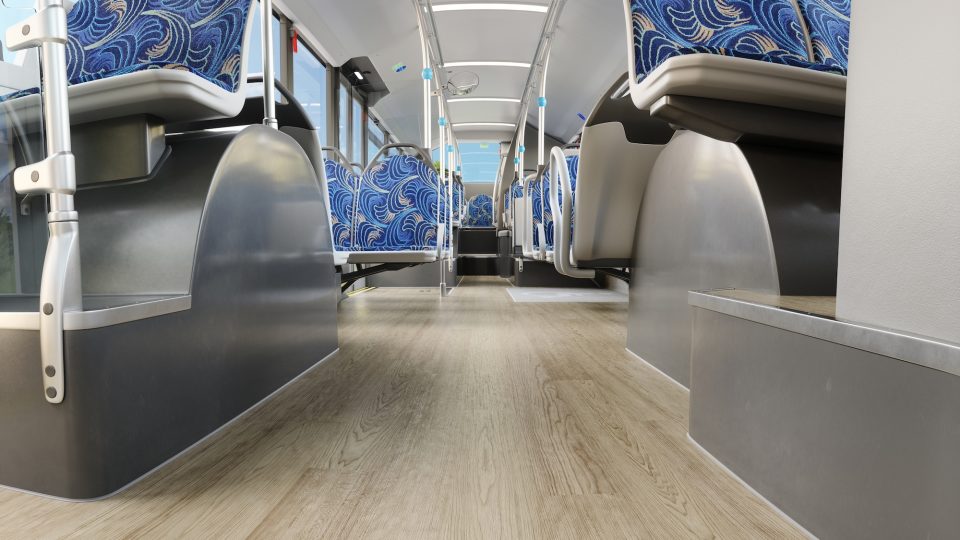Solaris working on an ADAS for e-buses with Poznań University of Technology
Solaris is working on a system that allow the bus driver to know precisely where to dock the pantograph under a charging station. The Polish manufacturer is cooperating with Poznań University of Technology in order to develop an advanced system of assistance for drivers of city buses, mostly electric ones, that can help drivers in the performance of manoeuvres. In the past few weeks, project […]
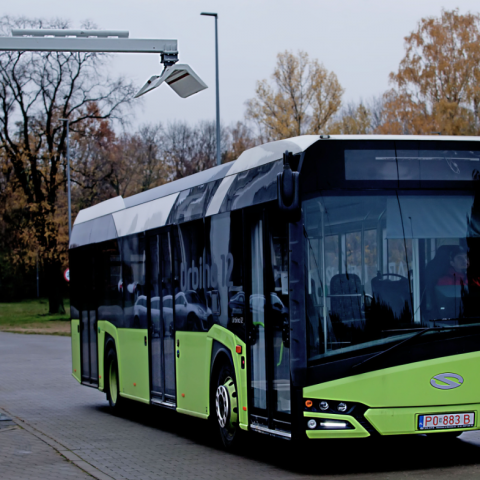
Solaris is working on a system that allow the bus driver to know precisely where to dock the pantograph under a charging station. The Polish manufacturer is cooperating with Poznań University of Technology in order to develop an advanced system of assistance for drivers of city buses, mostly electric ones, that can help drivers in the performance of manoeuvres.
In the past few weeks, project tests were run in front of the Municipal Stadium in Poznań.
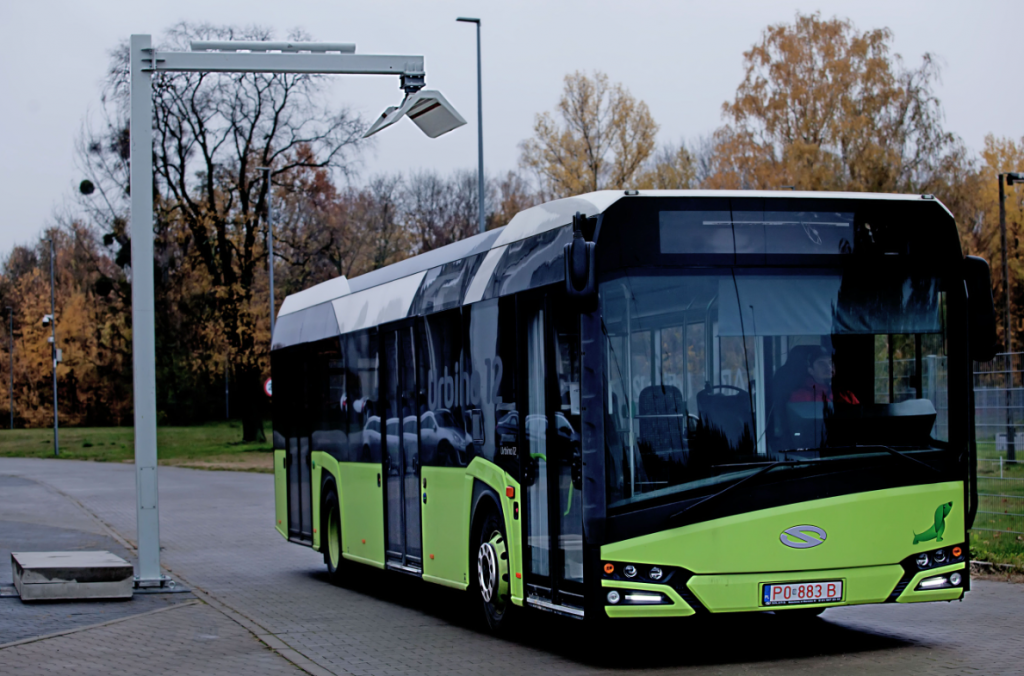
Solaris to improve safety with a advanced assistance system
Devised jointly by engineers of Solaris and of the Poznań University of Technology, the system will facilitate the performance of simple and complex manoeuvres, such as driving forward and backward or parking, but it will also constitute an invaluable support when carrying out precise movements, for instance docking the pantograph to the charging station, which may prove challenging in the case of articulated vehicles.
The goal of the project is to improve the safety of passengers and drivers of buses in city traffic. Moreover, it will help operators with manoeuvres on bus depot premises. The new system will also ensure optimal energy consumption by the vehicles.
Solaris ADAS: stopping under a charging mast won’t be a challenge anymore
In the past few weeks, the authors of the project dubbed ADAS (whole name: “Advanced driver assistance system for precise manoeuvres of non-articulated and articulated city buses”, subsidised by the EU) performed tests in front of the Municipal Stadium in Poznań. The tests allowed to optimise the driver assistance system used in the Solaris bus, the manufacturer points out.
For research purposes, the Solaris R&D Department designed and installed a mobile pantograph charging mast set up on the square in front of the stadium. The firm also supplied a bus featuring the system designed and supplied by the Poznań University of Technology. Thanks to the advanced device, the bus is capable of recognising a charging mast, and consequently, it will be able to precisely show the driver where to dock the pantograph under the charging station.
Solaris cooperates with Poznań University of Technology
Thanks to the software which the consortium is developing the vehicle will concurrently self-locate and create a map of the surroundings, in order to identify other road users on that map. What is more, the system is based on a neural network which enables the system to recognize specified objects in various weather conditions. Data transmitted from the ADAS sensors will be analysed so as to best use and fine-tune the operation of the software. The tests will also allow to check the operation of algorithms during the docking of vehicles under a station and to optimise their values.
“The Poznań University of Technology has been our long-standing partner for the development of drive technology and of various types of systems constituting the equipment of our buses. Thanks to our close collaboration, we are able to give our customers improved, more modern solutions, essential in the everyday use of vehicles. This project will considerably ease the daily work of bus drivers, and it will allow them to perform precise, but above all safe, manoeuvres,” says Michał Pikuła, Director for Bus Development at Solaris Bus & Coach S.A.
